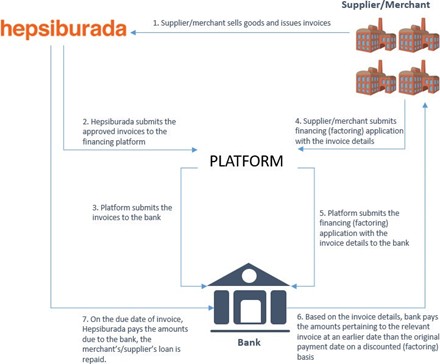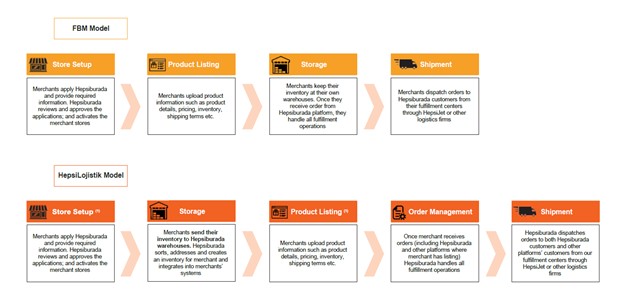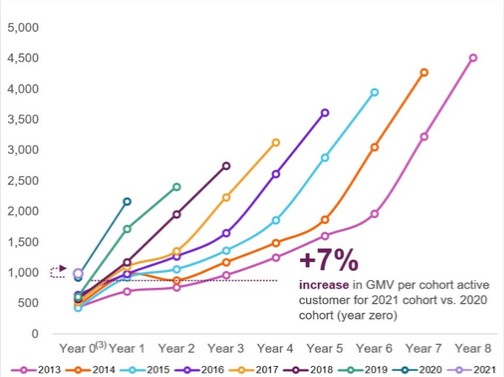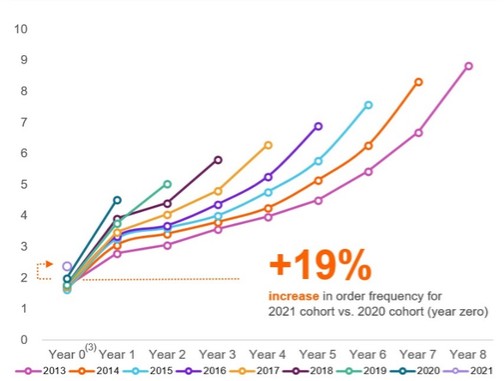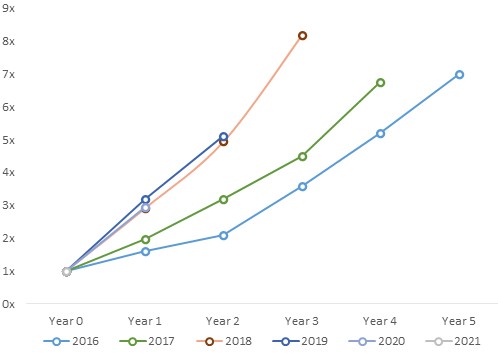any assurance that such protections will successfully prevent all cybersecurity incidents (whether through the use of “denial of service” attacks or otherwise) or the transmission of any computer viruses which, if not prevented, could significantly damage our software systems and databases, cause disruptions to our business activities (including to our e-mail, short message service (“SMS”), push and other communications systems), result in security breaches or inadvertent disclosure of confidential, sensitive or personal information and hinder access to our platform.
We use artificial intelligence solutions to inform our Direct Sales pricing and in the future our prices for Direct Sales may be informed in real-time by machine learning algorithms, any of which may, as the result of a bug or other error, result in unforeseen or disadvantageous pricing for our goods.
We may incur significant costs to protect our systems and equipment against the threat of, and to repair any damage caused by, computer viruses, hacking or other cybersecurity incidents. These costs, which could be material, could adversely impact our results of operations in the period in which they are incurred and may not meaningfully limit the success of future attempts to breach our information technology systems. Moreover, if a computer virus or other compromise of our systems becomes publicized, or if we are perceived to have failed to respond to security breaches of our systems or networks, our business, reputation and brand could be materially damaged, resulting in a decrease in the use of our platform, products and services.
Such failure to properly respond to cybersecurity incidents could also result in private consumer, business partner, or securities litigation and governmental investigations and proceedings, any of which could result in our exposure to material civil or criminal liability, and may adversely affect our business, financial condition and results of operations.
Unauthorized disclosure of sensitive or confidential customer information or our failure, or the perception by our users that we failed, to comply with privacy laws or properly address privacy concerns could harm our business and reputation with customers, merchants and suppliers.
We collect, store, process, transmit and use certain personal information and other user data in our business. A significant risk associated with e-commerce and communications is the secure transmission of confidential information over public networks. The perception of privacy concerns, whether or not valid, may adversely affect our business and results of operations. We must ensure that any processing, collection, use, storage, dissemination, transfer and disposal of data for which we are responsible complies with relevant data protection and privacy laws, including Turkish data protection and privacy laws as well as other data protection and privacy laws, such as the European Union General Data Protection Regulation (“GDPR”), particularly due to the launch and development of cross-border sales through HepsiGlobal. The protection of our user, employee and company data is critical to us. Currently, a number of our users authorize us to bill their credit card accounts directly. We rely on commercially available systems, software, tools and monitoring to provide encryption, secure processing, transmission and storage of confidential customer information, such as credit card and other personal information. We began collecting and processing an increased amount of personal information following the launch of Hepsipay, which may further increase as Hepsipay launches new financial services. Despite the security measures we have in place, our facilities and systems, and those of our third-party service providers, may be vulnerable to security breaches, acts of vandalism, computer viruses, misplaced or lost data, programming or human errors, or other similar events. Any security breach, or any perceived failure involving the misappropriation, loss or other unauthorized disclosure of confidential information, as well as any failure or perceived failure to comply with laws, policies, legal obligations or industry standards regarding data privacy and protection, whether by us or our merchants, could damage our reputation, expose us to litigation risk and liability, subject us to negative publicity, disrupt our operations and harm our business. We cannot assure you that our security measures will prevent security breaches or that failure to prevent them will not have a material adverse effect on our business. Further, we do not require our vendors to carry cybersecurity insurance to compensate for any losses that may result from any breach of security and our cybersecurity insurance does not cover any breach of security occurring at our vendors. Therefore, our results of operations or financial condition may be materially adversely affected if our existing general liability policies did not cover a security breach.
Hepsipay is subject to a number of risks that, if they were to occur, could materially and adversely affect our goal of leading the financial technologies market in Turkey.
Hepsipay conducts a significant amount of payments on our platform. In the fourth quarter of 2021, approximately 37% of the GMV were settled through Hepsipay’s wallet services and we expect that proportion to grow as Hepsipay Wallet expands. Hepsipay is
